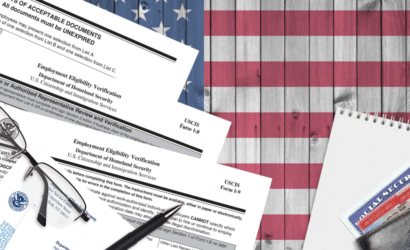Posted Workers Directive: A1 Requirements Employers Need to Know
Updated 10th March 2025 | 10 min read Published 23rd August 2023

Organizations with operations in the EU need to adjust to a new directive that has been transposed into legislation. Under the recent EU Transparent and Predictable Working Directive, UK-based employers operating in the EU must prepare in advance when sending an employee out to work in one of its Member States. This also covers employees who currently function in an operational role within one of these countries.
As far as social security is concerned, the insurability of posted workers is controlled by Regulation (EC) No 883/2004, a regulation that provides a legal framework for employers. Essentially, it determines which Member States a posted worker can be insured in, as well as other conditions that must be satisfied for the person to remain covered by the country's social security legislation. It also minimizes the risks of social security contributions fraud due to this formality.
The EU's recently adopted Directive on Transparent and Predictable Working Conditions requires each worker to be informed of any essential aspects of their employment, including project work and changes to working conditions, well in advance. This includes a requirement for employers to provide information to workers sent to a different Member State before their departure to their intended destination.
What is a posted worker?
A posted worker is a UK-based employee sent out to an EU Member State, or between multiple Member States, such as France or Italy, on a temporary basis. Typically, they will carry out a service on behalf of their organization during this time.
Posted workers are normally sent to complete work in an EU Member State based on:
- contractual services
- supporting hiring processes
- setting up operations
Before an employee is due to be posted, the employer must notify the authorities within the host country first. Organizations will need to share details about:
- Their workplace in the host country
- The duration of an employee’s posting
- Relevant contact information for the company
- Other specific details that might support the posting
What laws exist for posted workers?
Posted workers have a series of laws and regulations set out to protect them. Four laws apply to posted workers:
· Social security
EU Social Security law includes Social Security Regulations (SSR) which prevent employees from being subject to more than one EU social security system. This applies to travel between countries in the EU, EEA (European Environment Agency), Switzerland, and the UK. It also protects the Member State from being victimised by fraud, especially where social security contributions are concerned.
· Labor
EU Labor Law includes Posted Worker Directives which protects posted workers, including determining wages and working conditions. This applies to travel to the EU, EEA, and Switzerland.
· Immigration
Under the EU's freedom of movement principles, it's possible that immigration and visa requirements aren't necessary for posted workers. This will depend on the country of origin an employee is currently based in, the immigration laws of the Member State they are working in, and the amount of time they are required to spend there. It's worth noting that Posted Worker requirements should be followed and applied in such circumstances.
· Tax Law
Employees posted for less than six months may not be liable to pay income tax in the Member State they are working in. Income may become taxable if these periods are extended by more than six months. However, there are no EU-wide laws that determine which country can tax an employee's income when they have been posted. It might be that other national tax laws or regulations need to be met instead.
What is an A1 certificate?
An A1 certificate confirms which of a country or Member State’s social security laws apply to employees temporarily working in another EEA member country. They also ensure that posted workers only remain subject to social security in their home country. UK employees must hold a relevant A1 certificate to conduct business overseas, especially if it lasts more than eight days. The A1 form is also designed to provide security, minimizing the number of fraud cases relating to social security contributions.
What are the different types of A1 certification?
There are a few types of A1 certificates that employers need to be aware of. These offer flexibility for employers to post their workers but also support the EU’s Predictable and Transparent Working Conditions Directive.
· Single country
An A1 certificate for a single country can last up to two years. UK-based employers can use it to post the same employee out to its operations within one Member State, such as Germany.
· Multistate
Offering employers more flexibility, this A1 certification is renewable and enables posted workers to visit more than one Member State to complete their work. It’s important to note that when an employee is posted with this A1 form, they must receive forewarning before travel or changes are made. Employers must provide this in a written format.
· Special circumstances
There are certain circumstances where a posting might need to be extended for more than two years. This could be due to unexpected delays for an employer in setting up operations or where a project lasts for more than two years. Both social security authorities must approve this and even then, it could be rejected. Exemptions vary from case to case and country to country.
What do employers need to know about A1 certificates?
It’s important to note that the application of these regulations and directives can differ between countries, so checks will need to be made beforehand by both the employer and employee.
1. Posted Workers
The EU Posted Workers Directive stipulates that the host country's core working conditions apply. If a posting is longer than 12 months, all terms and conditions belonging to that Member State must be adhered to and any necessary immigration or VISA requirements are met. Employers can apply for an extension of 18 months but will need to file the correct paperwork to do so and ensure the employee is notified fully in advance.
It's worth noting differences dependent on the type of employees an organization has. The EU’s Posted Worker Directive applies only to employees, whereas SSR (Social Security Regulations) covers employees, those who are self-employed, and the country, or Member State, in which operations are located.
Under EU rules, an individual is only subject to one country’s social security laws at any one time, meaning their contributions must be paid to the respective country. However, if employees are required to visit multiple Member States during their posting, but the majority of their work is resigned to one, it’s likely any social security contributions will need to be paid there. For example, an employee required to oversee operations in Germany may also be required to complete site visits in Austria, France, and Italy for a short period of time.
As far as the terms and conditions of employment of posted workers are concerned, the Directive applies to all postings, irrespective of their duration. However, some provisions of the Directive do not apply to a short-term posting and might prevent the host Member States from applying their rules. There is a mandatory exception in cases of initial assembly and/or first installation of goods when the posting does not exceed eight days.
Do business trips count?
Workers who are sent temporarily to complete their job in another Member State, but do not provide services there, are not posted workers. This is the case, for example, of workers on business trips (when no service is provided), attending conferences, meetings, fairs, following training, etc. Such workers are not covered by the Posting of Workers Directives.
As far as the coordination of social security is concerned, regulations provide that, for every cross-border work-related activity (including “business trips”) the employer, or any self-employed person concerned, is under the obligation to notify the competent (home) Member State, whenever possible in advance, and obtain a portable document (A1). That obligation covers any economic activity, even if only for a short duration. These regulations do not provide for any exceptions for business trips either.
2. Social Security
Social Security Regulations determine that an employee temporarily working or visiting another EU/EEA member state would normally be required to pay the local social security of that member state on the day of arrival. Regulations apply to employees and the self-employed (any work activity) in the EU, EEA, Switzerland and the UK. However, within EU policy, an individual can only be subject to one country’s social security at a time.
An A1 form serves as evidence and confirms the country in which an employee (posted worker) currently pays their social security contributions, meaning they are not obliged to pay social insurance contributions elsewhere. Since the UK left the EU, the SSR carried over into the Trade Agreement between the UK and the EU. That means employers will need to adhere to any requirements the UK has regarding Social Security Regulations when posting employees there.
Do I need an A1 certificate for every trip?
Yes, unless you’re visiting the EU for short trips amounting to less than eight days. A1 certificates are usually valid for up to two years or the duration of the business trip, depending on the issuing state. If an employee will be traveling to member states on a regular basis, employers can apply for A1 certificates valid for up to two years.
Posted Workers Directive FAQs
How do I apply for an A1 form?
In the UK, an employer must submit an application to HMRC (CA3822). Once this has been approved, an employee can apply for an A1 certificate. In the EU it’s an electronic process, often done via payroll.
Why has the need for an A1 form become more significant?
Since the UK left the EU, the social security regulations rule has been carried over into the Trade Agreement, meaning it still applies. As the UK is now a third-country nation, the requirement to have an A1 form is even more important when applying for Visas and work permits.
Compliance and enforcement have always been very low within the EU. However, some EU countries such as France, Belgium, Austria, Switzerland, and Luxembourg have stepped up controls and enforcement of the A1 certificate, while others appear to concentrate on particular industries, such as construction, where social security contributions fraud is known to be more widespread.
What do you do if you don't receive your A1 form in time for travel?
In the UK, employees will not always receive their CA3822 certificate back in time before travel. As long as employees submit their notification and capture proof of their submission, this will suffice.
If applying for a Visa or a work permit, employees will require your physical CA3822 certificate as part of the application. HMRC can take up to 10 weeks to issue the certificates; these should be applied for as far advance as possible when obtaining a Visa or work permit.
Are there any exceptions to the requirement for an A1 form?
If employees are traveling as business visitors within the Schengen Visa Waiver Rules, such as traveling for business meetings, conferences, meeting clients or customers and colleagues, they will not require an A1 form as they are not 'working'. Working is undefined within EU law.
However, EU member states see 'work' as any activity that would require a work permit. No EU member state has the authority to deny entry if an individual does not have an A1 form on them; it is not an immigration document.
Looking for an international HR consulting service that assists your global mobility objectives?
At IRIS FMP, we’ve worked with hundreds of companies looking to expand their operations and offer global mobility to their employees. As part of our International HR Consultancy service, we’ll assist you with local taxation requirements, as well as Visas and work permits for your employees. Enquire today.




